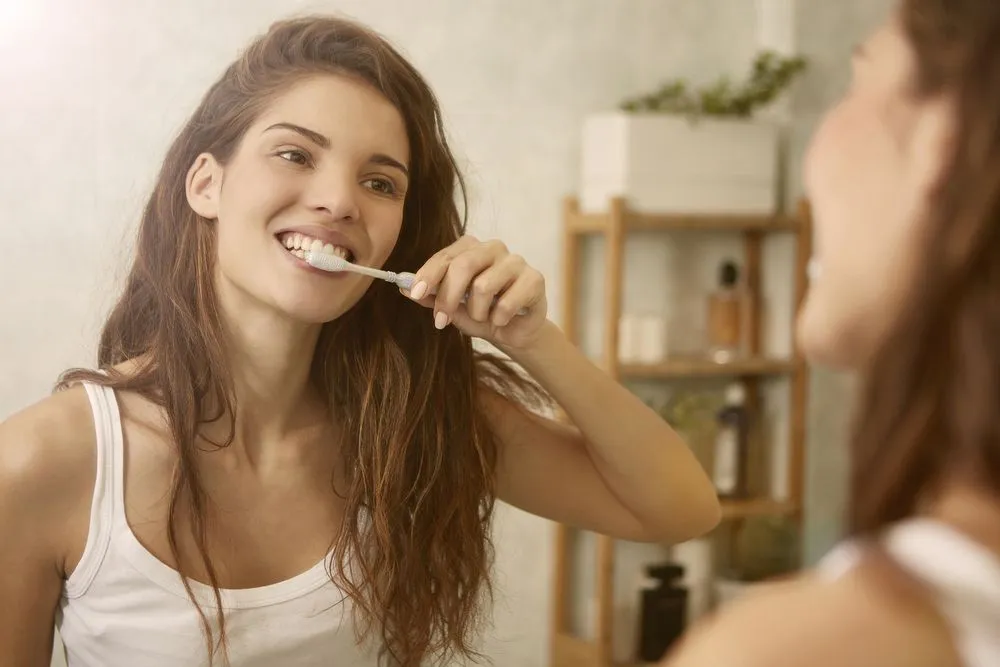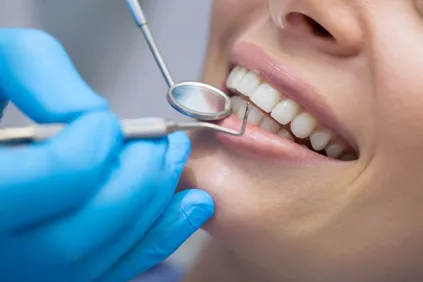The Importance of Teeth Cleaning by a Dentist
Having your teeth cleaned regularly by a dentist is one of the most important things that you can do to keep your mouth healthy. Professional cleanings can remove plaque and tartar that a toothbrush can not make any headway on, and can examine your mouth for any trouble spots. Usually, a dental hygienist does the actual cleaning, while a dentist may perform the exam or any work you are having done at the same time.

How Professional Teeth Cleaning Works
A teeth cleaning usually starts with an exam. This is where those funny little mirrors on sticks are put to work, looking at the back of your teeth and the insides of your gums. This looks for gingivitis or more advanced gum disease, which might mean the dentist, has to be especially careful or thorough.
The first step in the actual cleaning is scaling. This involves scraping the teeth with a pick to remove tartar. Tartar is what happens when plaque is allowed to harden, and it can only be removed by a dental professional. Plaque can be removed by brushing and flossing, so if you have a lot of tartar to remove, remember to brush and floss more next time! Scaling will involve a scraping sound and pressure on the teeth, but it should not be painful. Let your dental professional know if it is uncomfortable.
An electric toothbrush used with special, gritty toothpaste is the next step in the cleaning. Gritty toothpaste is too harsh to use on your teeth every day, but it is great for getting those last little bits of plaque and tartar during a professional cleaning. The toothbrush is a special, high-speed professional model that is more powerful than the ones you use at home. It may make a grinding noise and vibrate, but again, it should not be uncomfortable.
Flossing is usually the next step. Even though you may floss regularly at home, a professional flossing can get some areas that you miss. It is also important in this context because it helps remove the plaque and tartar that has been loosened by earlier parts of the cleaning process. Then, you will be asked to rinse, usually with a special rinse containing fluoride.
Fluoride may also be delivered in the form of a paste, gel, or foam that is put into a bite tray. It helps harden the enamel of the teeth and makes it less likely that you will get cavities. Usually, the bite tray is filled with a flavored solution that you hold in your mouth, over your teeth, for a minute or two. How often you receive fluoride treatments will depend on your teeth and your dentist's preferences.
Come to SpringCrest Dental for Teeth Cleaning
Regular teeth cleaning helps protect your teeth and keep your mouth healthy. Here at SpringCrest Dental, we advocate routine teeth cleaning for people of all ages. Call us today at 469-736-0111 to make an appointment for your professional teeth cleaning.

Keeping your mouth and teeth healthy is similar to and just as important as keeping your body healthy. Things like getting regular exercise, eating nutritious foods and reducing the stress in our lives are things we know we should do to maintain good health and reduce susceptibility to illness and injury. The same is true for maintaining dental health. If we properly care for our teeth , we can avoid developing any dental-related problems or injuries. Preventative dental care is also important because, sometimes, dental problems are an indicator of other health issues -- such as Crohn’s Disease, blood disorders or osteoporosis -- that may require serious medical attention. With proper dental maintenance, health problems can sometimes be detected early, before they begin to seriously affect our overall body functions.
What Should I Do to Help Protect My Teeth?
One of the most important ways stay on top of dental health is to get regular dental checkups. Everyone’s dental makeup and health is different, so it’s important to meet with a dentist to get specific dental maintenance recommendations for your particular circumstances. Things your dentist may take into consideration when creating a customized plan of dental maintenance are your age, overall health, level of physical mobility and other factors.
Should I Brush Once or Twice a Day?
It is highly recommended that you brush your teeth at least twice a day. It’s not the worst thing in the world if you brush just once a day, but doing so will leave you susceptible to developing annoying and expensive to fix dental problems. Without a regular, twice a day routine of brushing and flossing, you run the risk of getting gum disease, infections and cavities, not to mention chronic bad breath. Most people are over-busy and over-tired these days, so it’s understandable that you forget to brush at night sometimes. However, making a special effort to remember the twice daily brushing rule is well worth it when you consider the expense of procedures to treat gum disease.
Is Flossing Really Necessary?
Just like brushing, flossing helps to keep teeth healthy by removing food particles and plaque buildup between the teeth. Without this extra step, you could still be at risk for developing problems with your teeth and gums. If you’re already brushing once or twice a day, just put a container of floss by the sink as a reminder to floss right before you brush. This simple action can save you from spending money on reparative treatments and having to spend extra time in the dentist’s chair.
What are Some Signs of Serious Problems with My Teeth?
Those who have experienced toothaches know that they can be quite painful. Some injuries or dental treatments can cause minor toothaches, but if you start to experience prolonged discomfort, it’s important to see a dentist right away for a diagnosis. Some tooth pain symptoms that you should probably contact your dentist for are extreme sensitivity to hot or cold sensations, pain when biting down on food, swelling of gums, prolonged pain or feeling of pressure in the gums, dull ache in the upper teeth or jaw.

